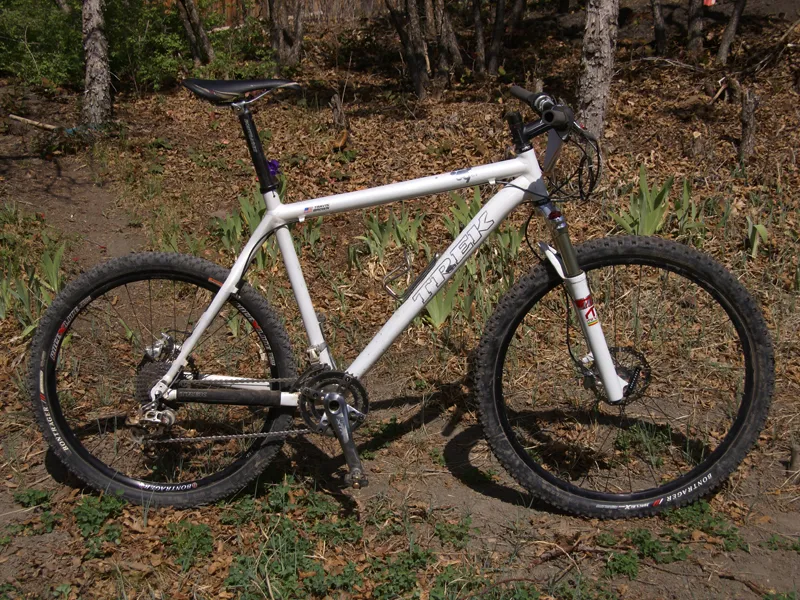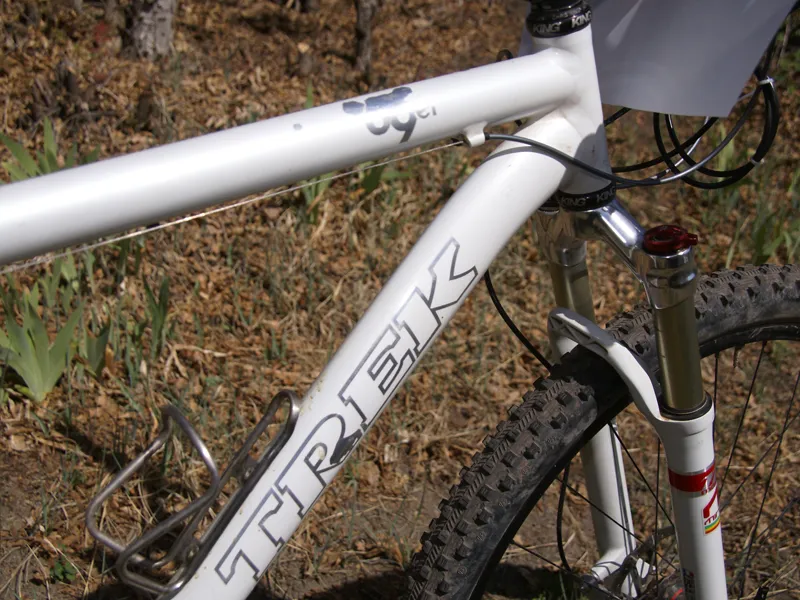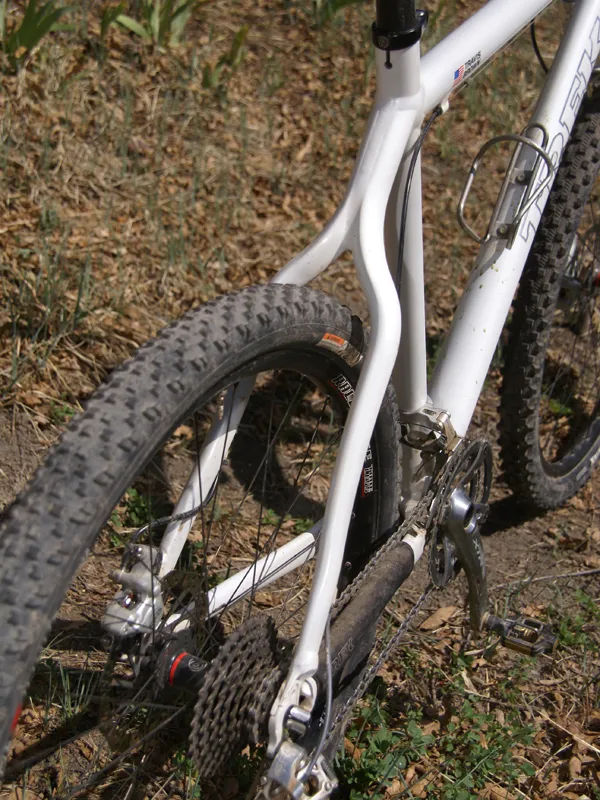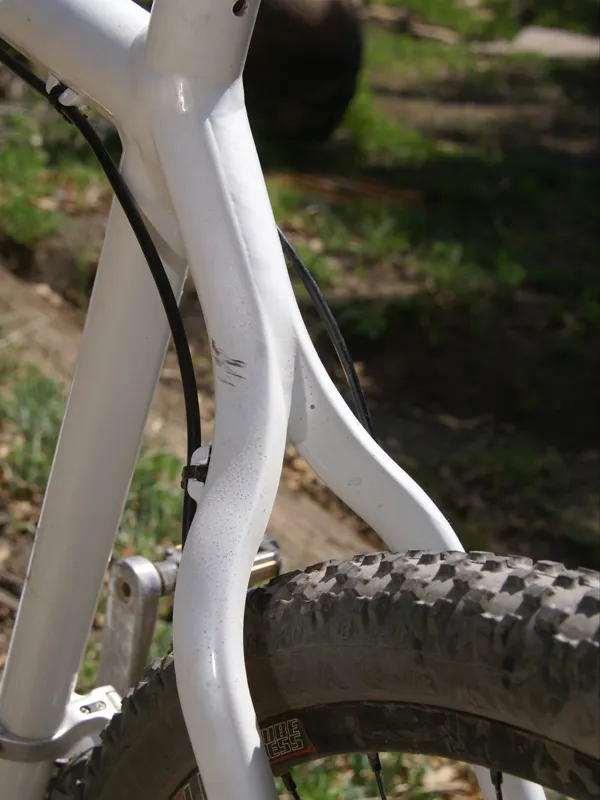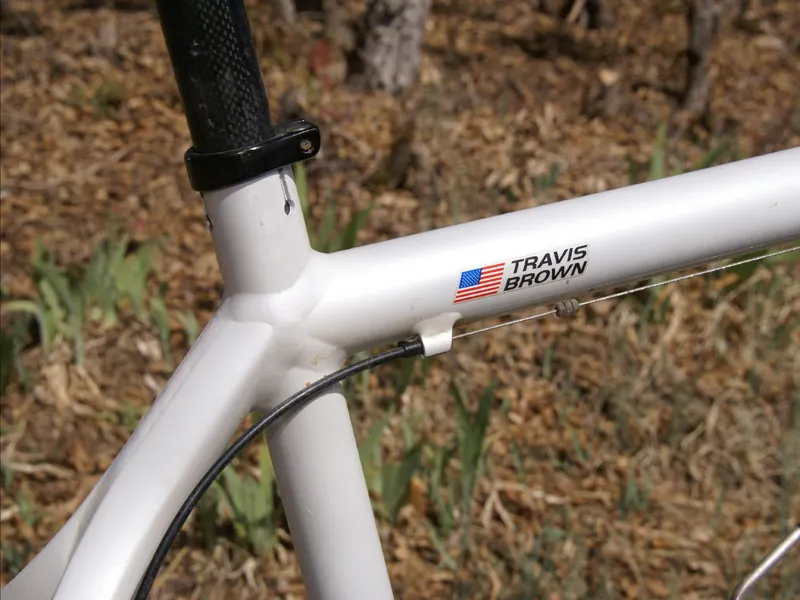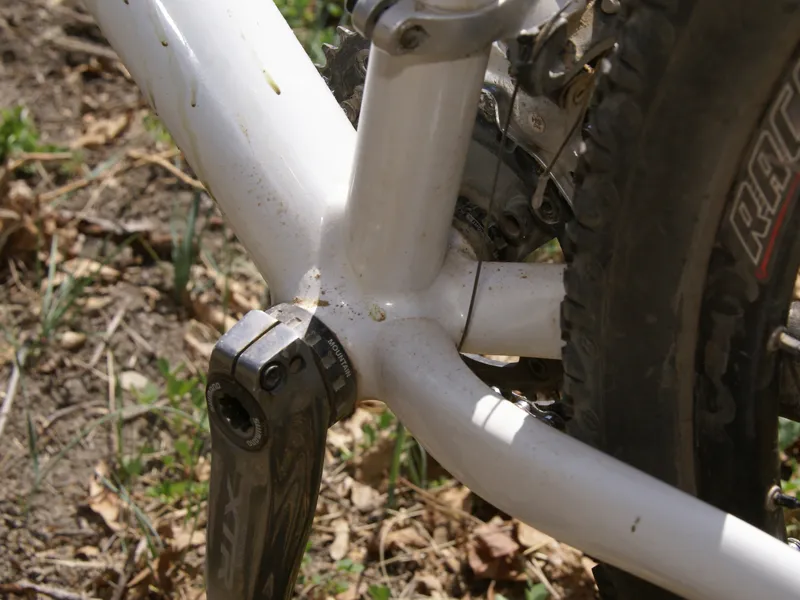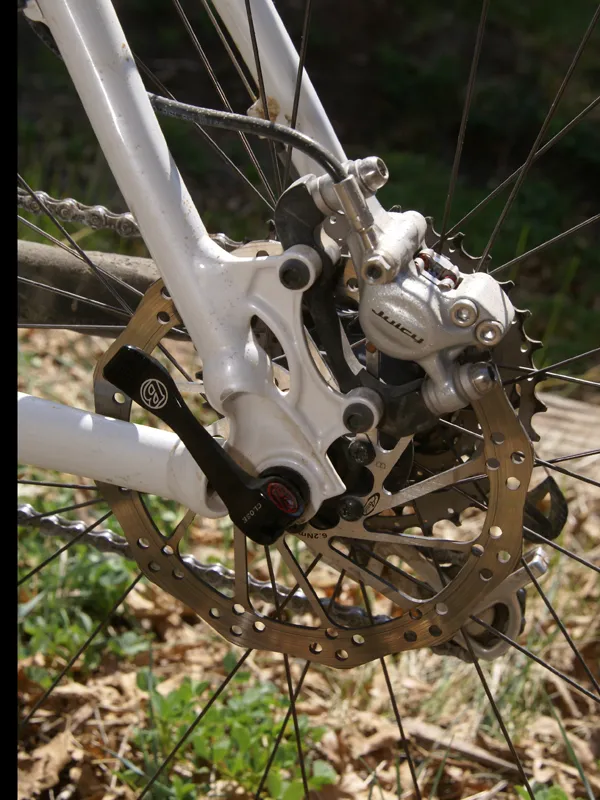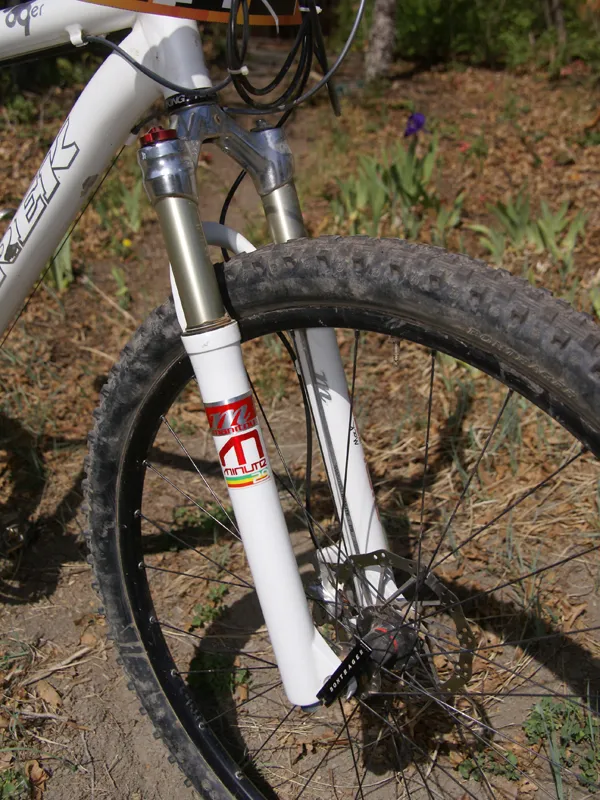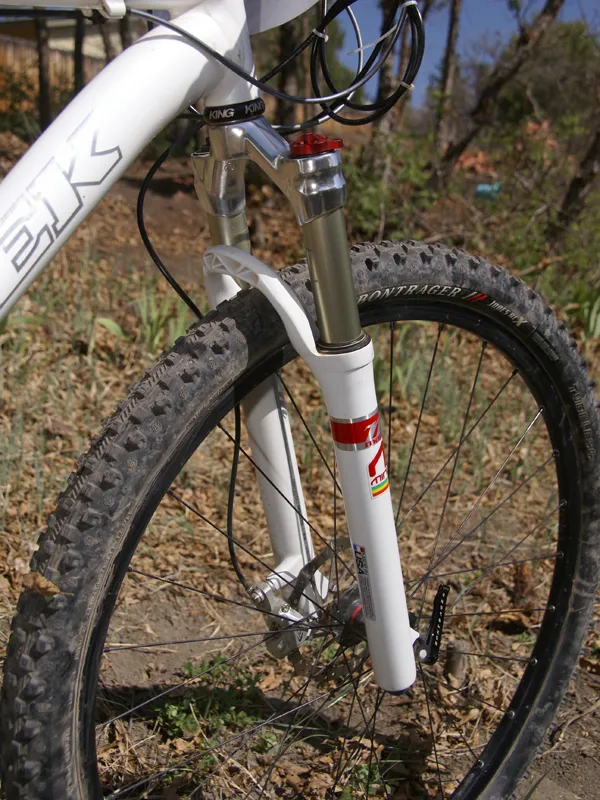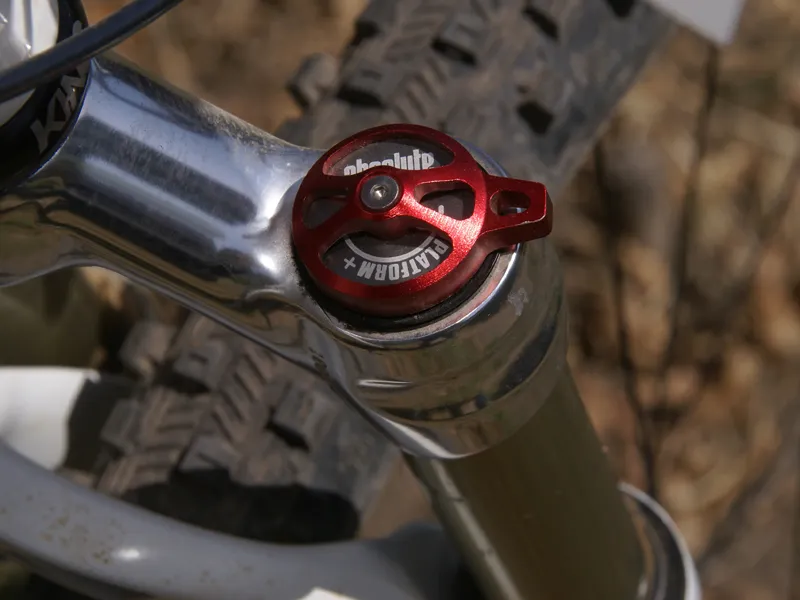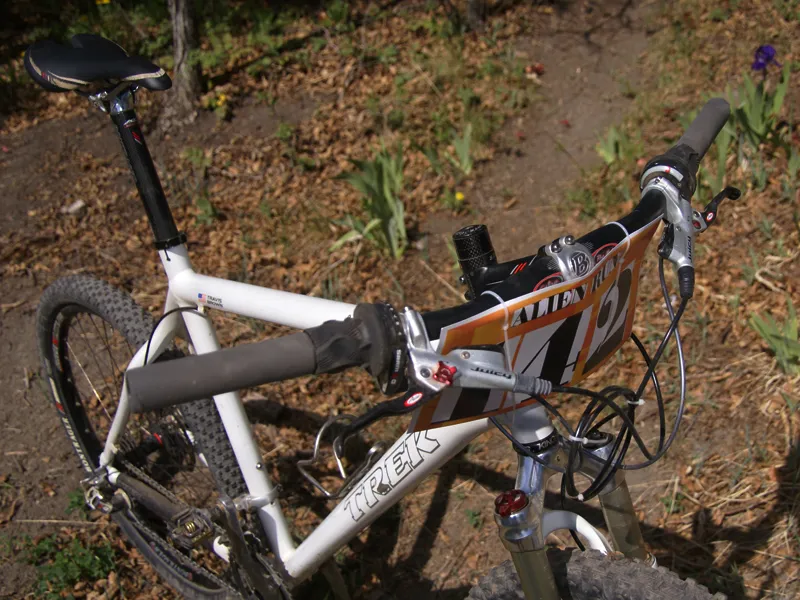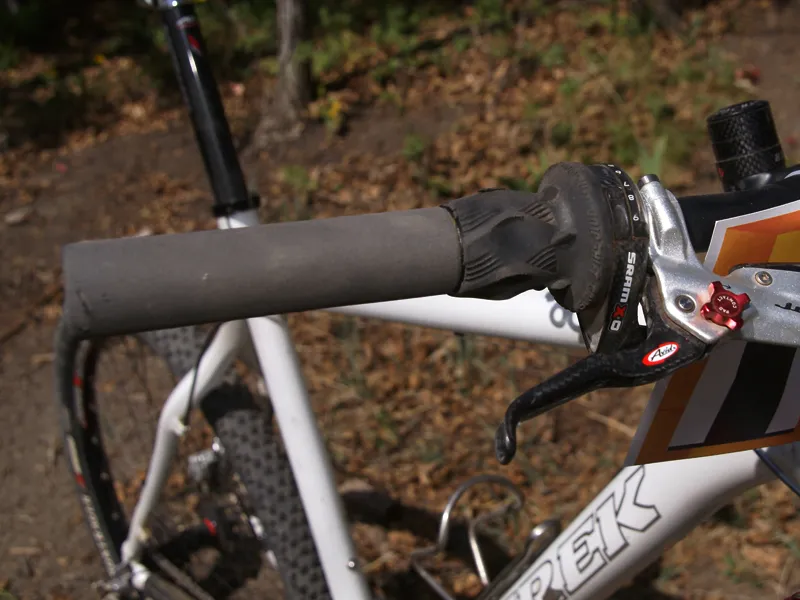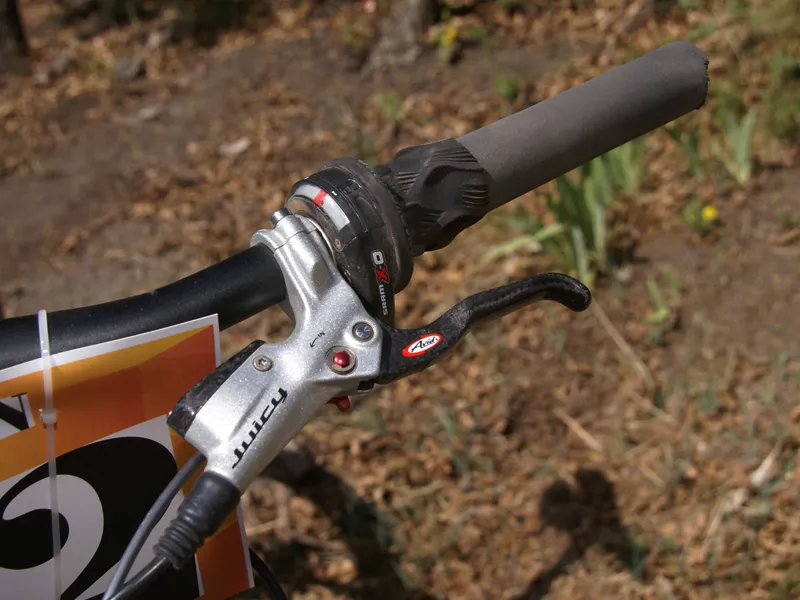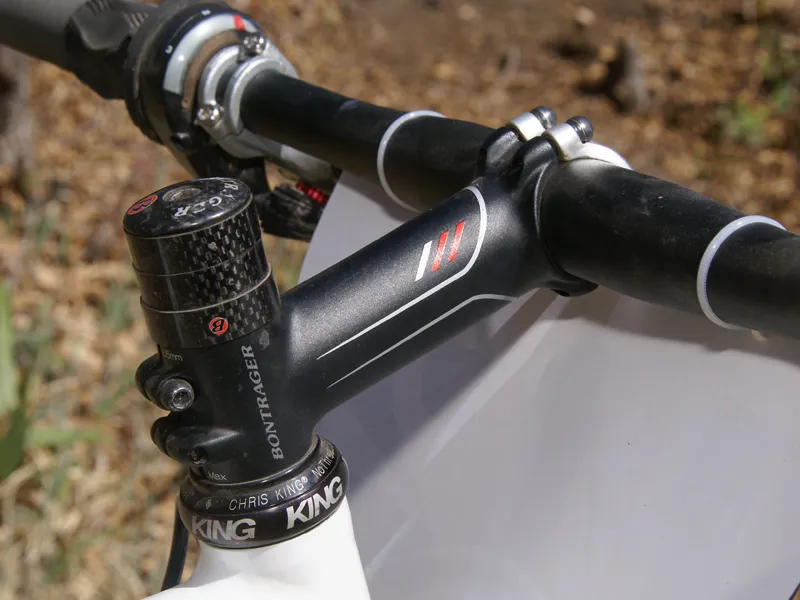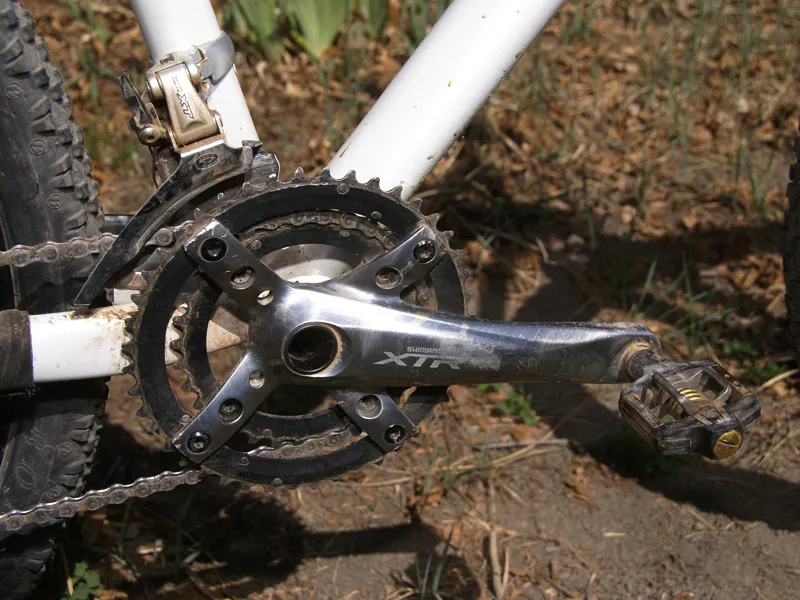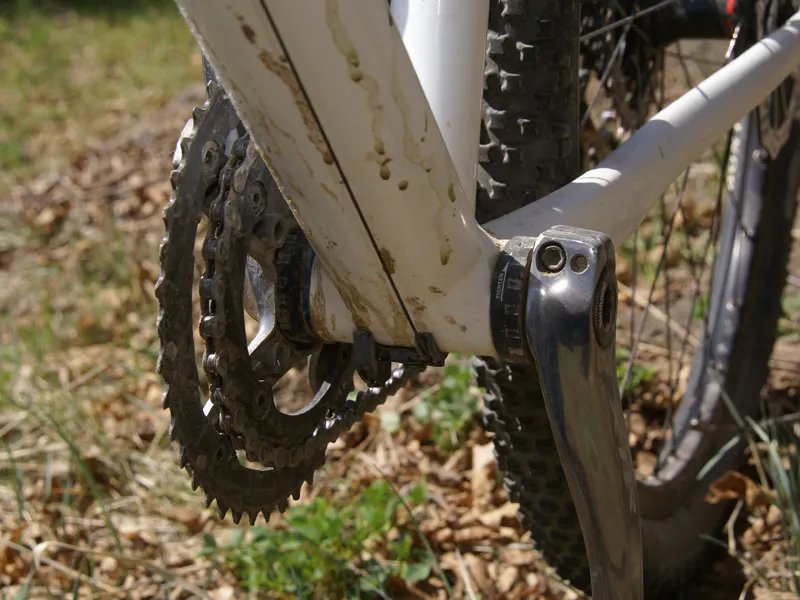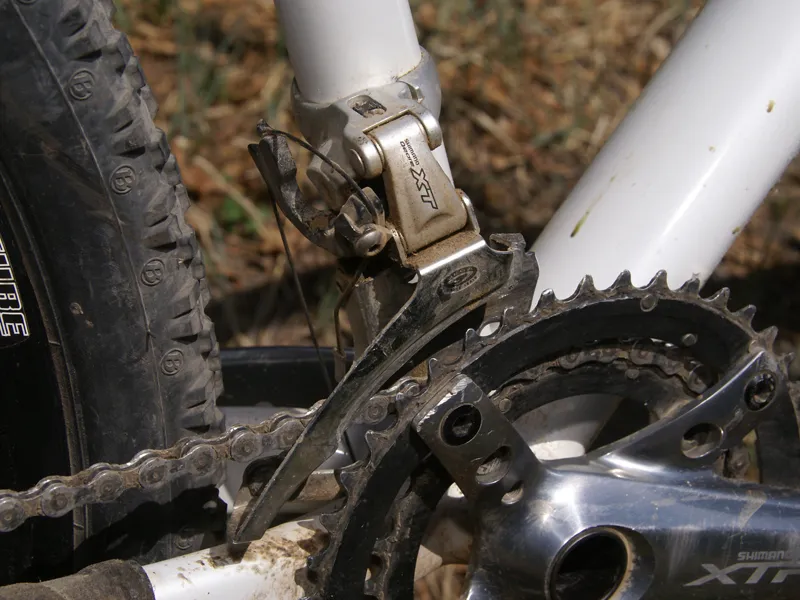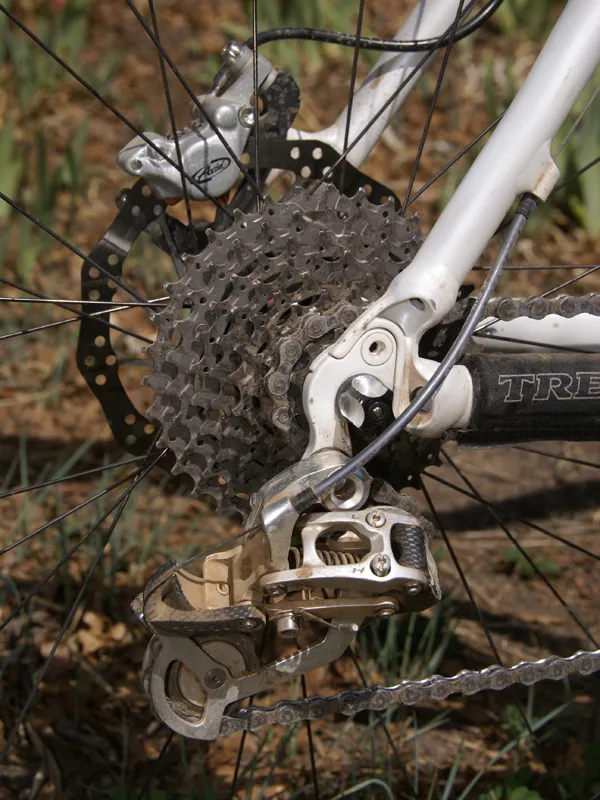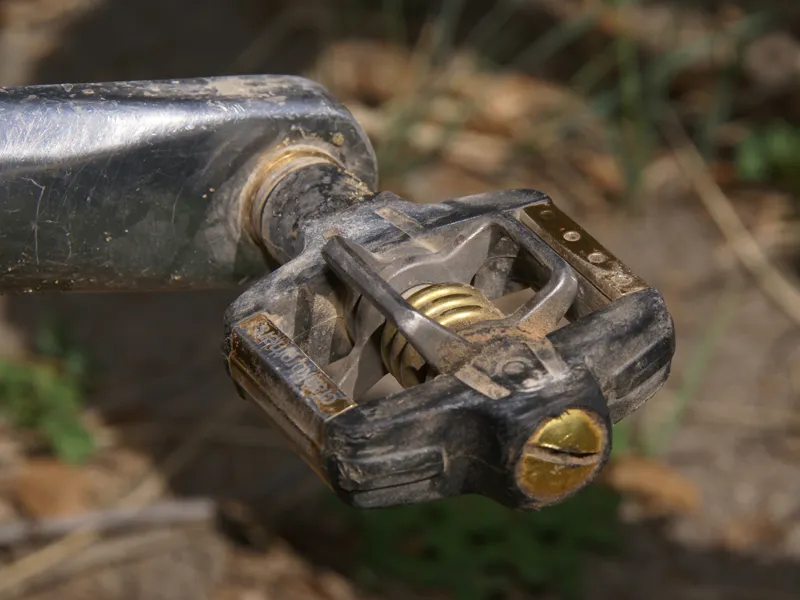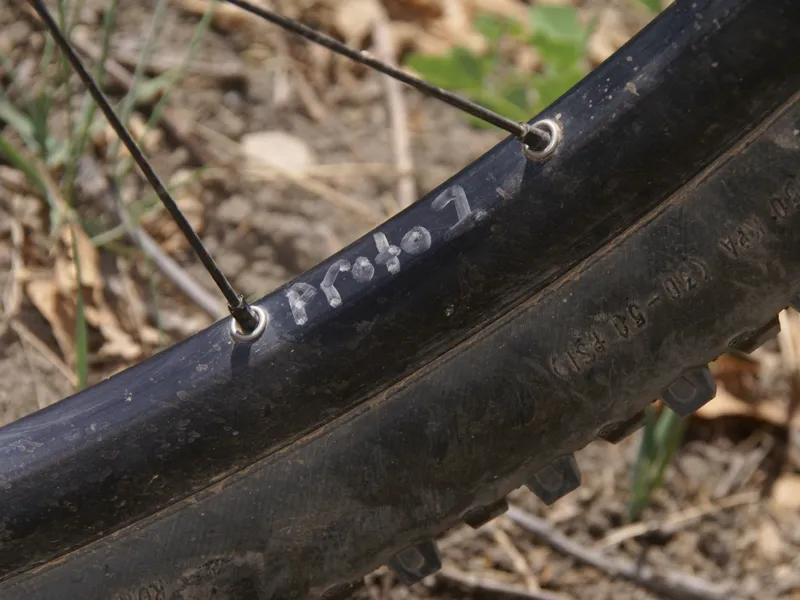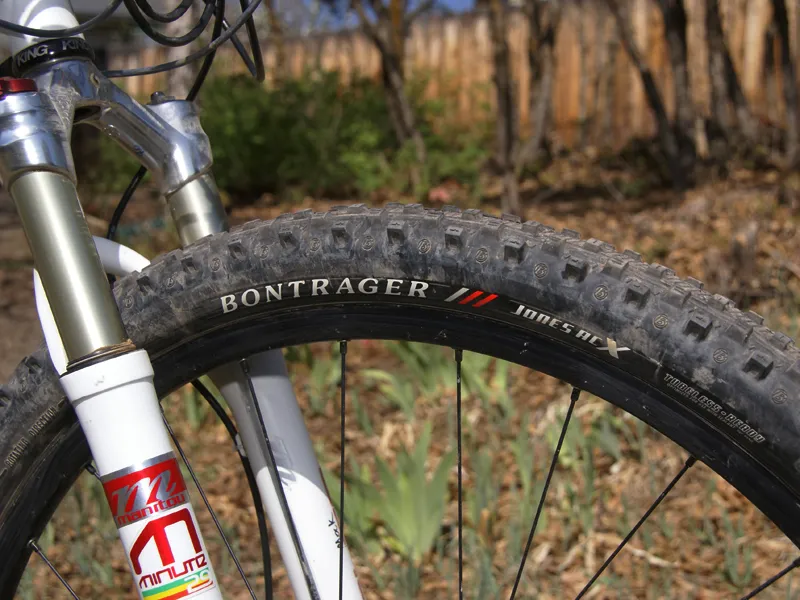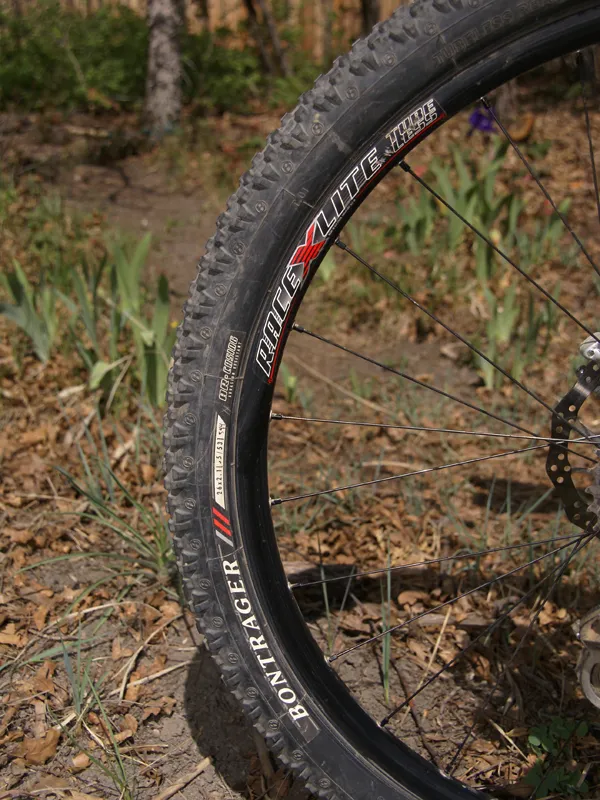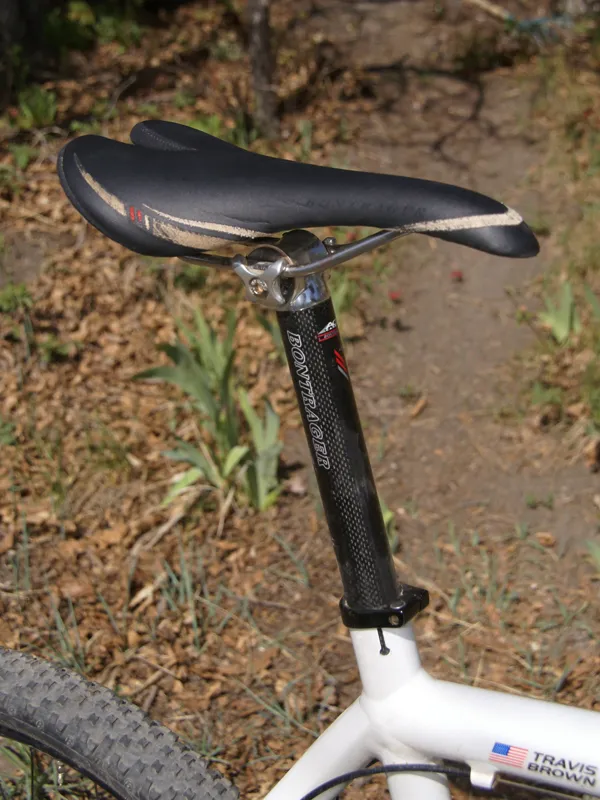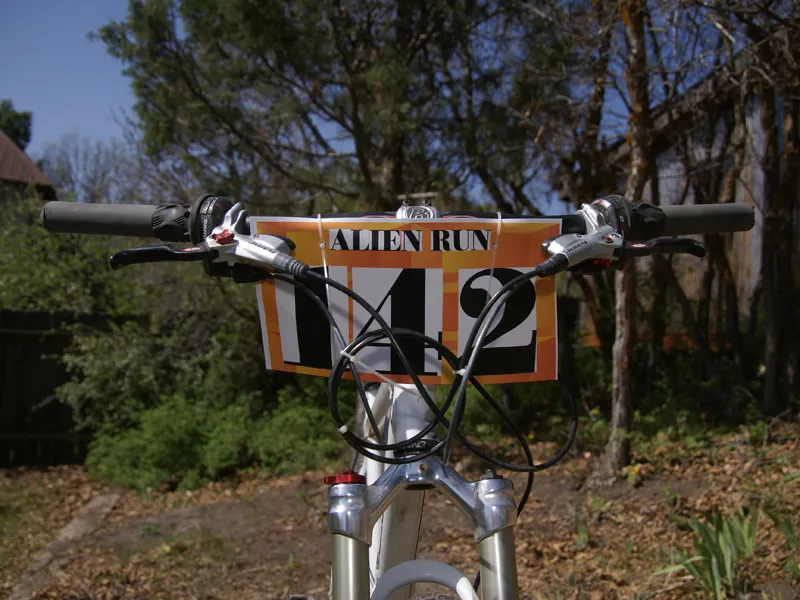Trek Bicycle Corporation has often erred on the side of caution when it came to its mountain bike line so when it debuted its 69er singlespeed at the 2006 Sea Otter Classic, many were caught off guard. But that bike's introduction didn't exactly signal a willingness to adopt largely unproven ideas; rather, it was the passionate support of the platform by a few key figures that finally forced company head John Burke to relent and agree to bring the concept to market.
Spearheading the idea internally was Travis Brown, a former pro mountain bike racer who is now heavily involved in product development for the Wisconsin-based firm.
"When I started doing a lot of work in product development and started testing [Gary] Fisher product, I started riding the big wheel stuff on the Fisher platform quite a bit," he said. "There're obviously some distinct characteristics of the different size wheel, some of which I really liked. And there were some characteristics that I couldn't quite get used to."
One of those characteristics was the increased effort required to lift the front end on a 29er, which Brown terms the 'manualability' or 'boostability'. "There are things about the 26" wheel that we were really attached to in a lot of conditions. We had speculated that maybe its chain stay length or a whole bunch of different things," Brown surmised. "I think it's actually just the distance from the axle to the ground and how much easier that lever is to pivot up on than a 29" wheel."
According to Brown (and other 69er supporters), the combination of a 29" front wheel and standard 26" rear offers a number of advantages that neither wheel size can completely offer on its own, namely the ability to steamroll trail obstacles up front without sacrificing the smaller wheel's nimble handing characteristics in more technical terrain.
In addition, Brown claims the 69er platform is lighter and stiffer than a full-blown 29er and it's also easier to provide better mud clearance at the back end. Even so, he admits that even the 69er has its drawbacks.
"It doesn't have the suppleness of a 29" wheel so there are some things you give up. But for racing and general trail riding, that's what I think is the best for my riding style. I still ride 29" wheels on a lot of stuff and I still ride 26" wheels on a lot of stuff but I think the inherent handling packages on the 29" front and 26" rear have enough attributes that I think it's going to grow a lot."
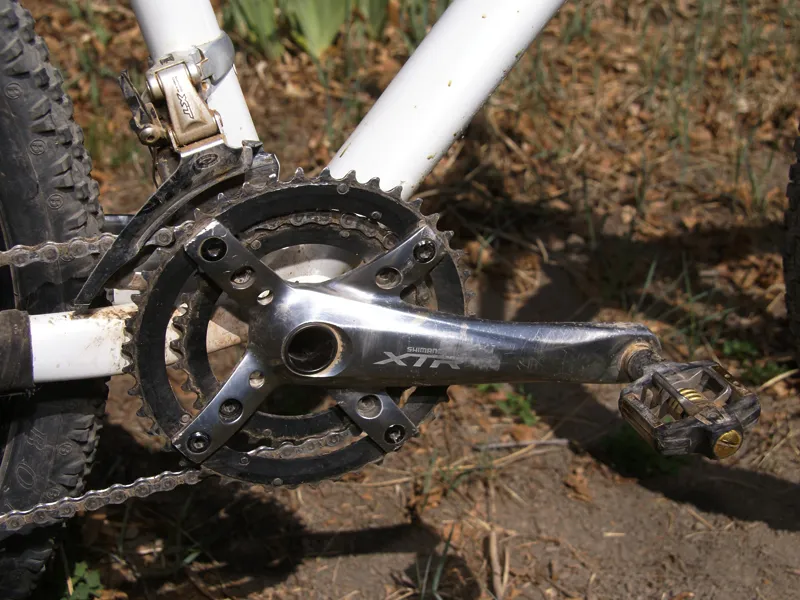
Some may wonder why someone like Travis Brown continues to use an old XTR M960 crankset…
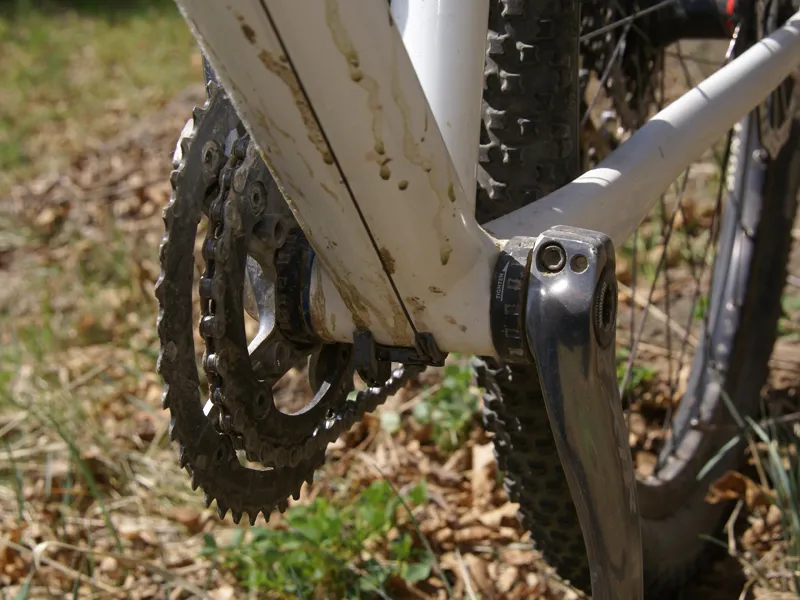
…but hidden inside is a specially shortened bottom bracket spindle to decrease the pedal stance width.
Indeed, Trek has since expanded the original 69er model to include geared hardtails and even full-suspension models. Brown's personal geared hardtail is actually one of the initial prototypes that was fully welded in-house but otherwise uses stock 21.5" geometry and tubing. The build kit also consists of mostly off-the-shelf items, including the SRAM X.0 and Shimano XT/XTR drivetrain, Bontrager Race X Lite 26" rear and 29" wheels wrapped with Bontrager tyres, Avid Juicy Carbon hydraulic disc brakes and Crankbrothers Candy 4ti pedals. Front suspension is provided by an 80mm-travel Manitou Minute 29 fork.
A few items clearly stand out of Brown's rig, though, namely the previous-generation XTR M960 crankset. Only this is no standard XTR crankset as its bottom bracket spindle has been cut in the middle, shortened and then re-welded to decrease the pedal stance width. In addition, the handlebar is a generously backswept and exceptionally wide Salsa Pro Moto flat model capped off with ESI's surprisingly light-yet-comfy silicone foam rubber grips.
Total weight on Brown's hardtail is a respectably light 10.7kg (23.6lb). While there are a number of full-suspension machines that rival or better that figure, it could be argued that few of those can truly match the absolute pedaling efficiency and direct feel of the rigid rear end. Conversely, the larger front wheel provides handling capabilities that most 26" hardtails can only dream of.
When put in that context, most people's gut reaction to the mismatched wheel sizes might not be entirely justified. In fact, Brown and the rest of the 69er crowd might just be on to something here.
Full specification
- Frame: Trek 69er hardtail prototype
- Size: 21.5"
- Fork: Manitou Minute 29 80mm
- Front brake: Avid Juicy Carbon, 160mm rotor
- Rear brake: Avid Juicy Carbon, 160mm rotor
- Brake levers: Avid Juicy Carbon
- Front derailleur: Shimano XT FD-M761
- Rear derailleur: SRAM X.0
- Shift levers: SRAM X.0 twist
- Cassette: Shimano XTR CS-M970, 11-34T
- Chain: Shimano HG93
- Crankset: Shimano XTR FC-M960 with custom shortened spindle
- Bottom bracket: Shimano XTR FC-M960
- Rear wheel: Bontrager Race X Lite TL 26"
- Front wheel: Bontrager Race X Lite TL 29" prototype
- Front tyre: Bontrager Jones ACX 29er Tubeless Ready, 29x2.2"
- Rear tyre: Bontrager DryX, 26x2.1 Tubeless Ready with AR casing
- Bars: Salsa Pro Moto Flat, 710mm
- Stem: Bontrager Race X Lite, 105mm x -7°
- Headset: Chris King NoThreadset
- Tape/grip: ESI Silicone
- Pedals: Crankbrothers Candy 4ti
- Seat post: Bontrager Race X Lite, 5mm offset
- Saddle: Bontrager Race X Lite
- Bottle cages: King Cage titanium
- Total bike weight: 10.7kg (23.6lb)
Critical measurements
- Rider's height: 1.85m (6' 1"); Weight: 77.1kg (170lb)
- Seat tube length, c-c: 480mm
- Seat tube length, c-t: 550mm
- Top tube length: 638mm
- Saddle height, from BB (c-t): 802mm
- Saddle nose tip to C of bars: 600mm
- C of front hub to top of bars: 690mm
